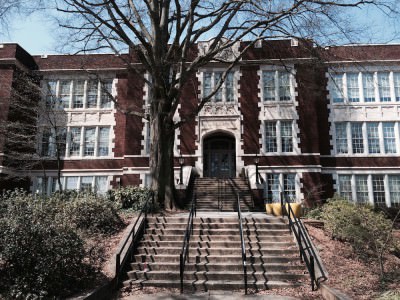Monday, February 10, 1868
The Convention was called to order on Monday at 10 o’clock, Mr. Pres. Cowles in the Chair.
The convention’s business began with a resolution to address corrupting influences on the work of the Convention. Mr. Durham said it was rumored on the streets, hotels and everywhere, that money had been used to induce members to vote for certain ordinances. His resolution calling for a Select Committee of Three appointed by the President to investigate these charges was adopted.
Mr. Abbott then proposed a resolution that no one but the chairmen of committees, movers of resolutions, or authors of minority reports could call for the previous question. Mr. Hood said that this resolution was a round-about way to do what couldn’t be done directly and the resolution would gag about two-thirds of the Convention. Mr. Ashley countered that the object was to prevent interminable discussion on irrelevant matters. Mr. Abbott concurred that the manner in which debates were now conducted was intolerable, and while he did not desire to gag any one, he did wish to put an end to the evil. The resolution was not adopted.
On matters of the constitution, Mr. Rich’s resolution regarding veto power was taken up but quickly decided to have it addressed when the the 1st article of the constitution was reported from the Committee on Revision.
The Convention then took up the draft of the provisions for a militia. Mr. Graham moved to amend to provide that “white and colored persons shall be organized into separate commands, and no white man shall ever be required to obey a negro officer.” Mr. Hood said that he was opposed to the world “colored” in the constitution. He said that if the Convention desired to divide the milita into races, they would find it a difficult job. After lengthy discussion, the amendment failed, yeas 9, nays 83.
The Convention also took up the Report of the Committee on Corporations other than Municipal. Draft provisions addressed issues of banks and state authority. In making amendments, Mr. Tourgee commented that a State which has suffered like this should prohibit banks. Mr. Jones noted that a tyrant worse than the Czar of Russia, once governed here cannot be denied, but that time having now passed, it should be remembered that no constitution can be perfect which does not provide for the internal affairs of the State. Delegates further discussed whether these issues were properly part of the section of the Constitution or should be part of the work of the finance committee. The issue was postponed to Thursday next.
On motion the convention adjourned.
Albion Tourgee writes again to his wife. Using convention letterhead, his letter says, in part:
My Dear Wife;
Your letter of Saturday was received this morning. I am busy now and can only write you a few words. Do not be troubled. I will send some money as soon as possible. You know God has never yet forsaken us, and I hope and believe He never will. I cannot see how His hand will work out the divine wisdom and beauty, but I cannot but trust in Him.
God help you Darling.
A.W. Tourgee
Resources
Ferrell, Joseph, ed., Compilation of the Official Report of the Proceedings of the Convention (Chapel Hill, N.C.: unpublished manuscript 2007). (See day 8 for fuller explanation of this resource.)
Tourgée, A. W., & Chautauqua County Historical Society. (1801). Albion W. Tourgee papers, 1801-1924.
Recommended reading



